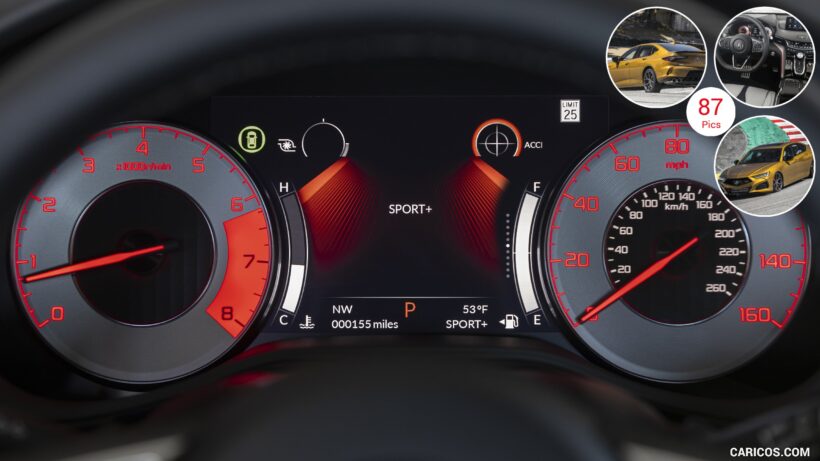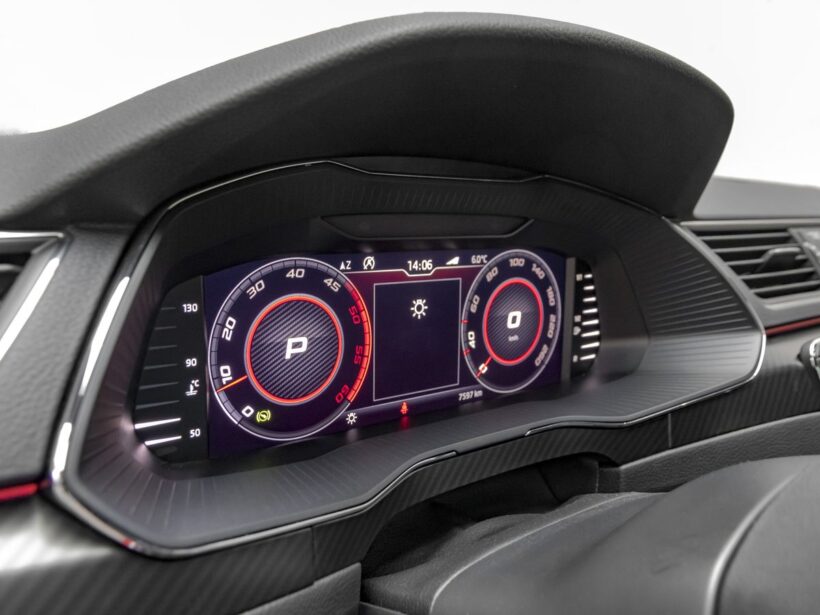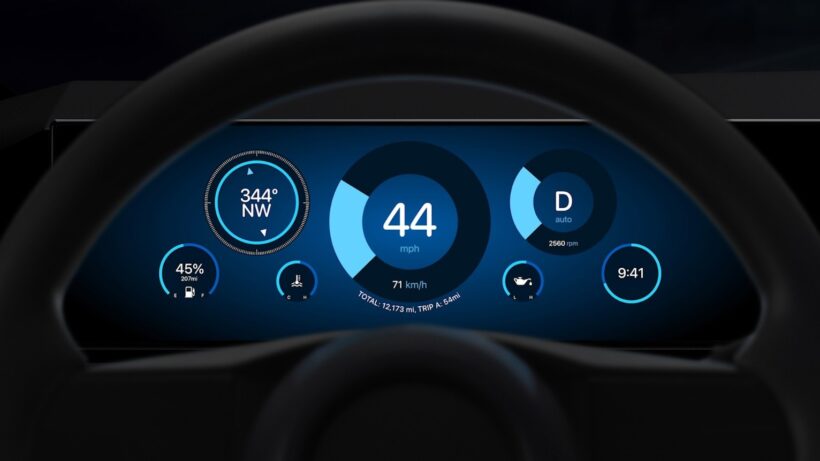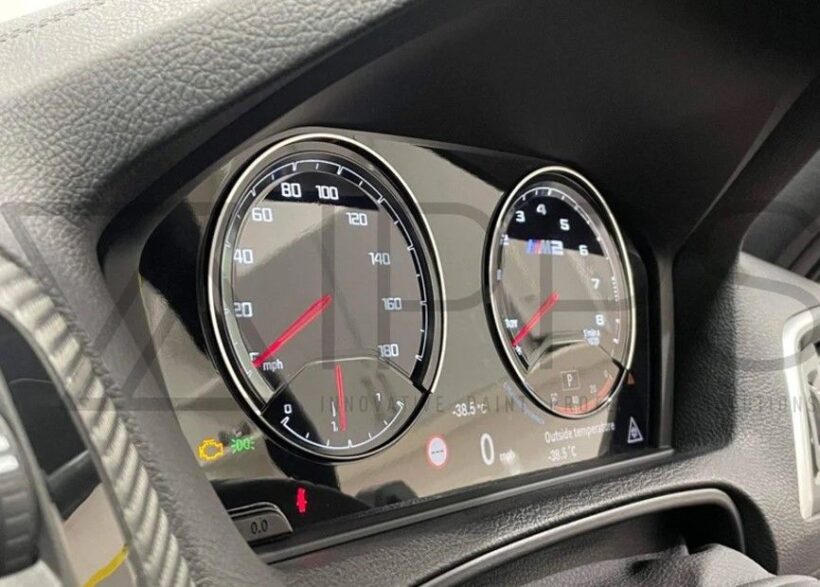Your vehicle’s instrument cluster serves as the dashboard’s nerve center, relaying critical information about the vehicle’s performance to keep you safe and entertained on the road. Choosing the correct instrument cluster is crucial whether you’re behind the wheel of a small sedan, a large SUV, or a sleek sports vehicle. In this article, we’ll review some of the most important things to remember when shopping for a car’s instrument cluster.
Compatibility with Your Vehicle

When deciding on an instrument cluster, compatibility should be your priority. This is necessary because the instrument cluster is only a universal fit for some vehicles. Wiring harnesses, connectors, and communication protocols must conform to strict standards set by the automotive industry. An incompatible cluster can cause problems like inaccurate readings, malfunctioning displays, and damage to your vehicle’s electrical system.
For guidance on which instrument clusters are compatible with your make and model, please refer to your owner’s manual or contact the relevant manufacturer. When you’re ready to find the perfect one for your vehicle, look no further than the exceptional selection of instrument cluster from Instrument Sales.
Type of Instrument Cluster

There are many kinds of instrument clusters, each with its own advantages. Here are some examples of the most prevalent types:
Analog
The analog cluster is the epitome of efficiency and ease. They use old-fashioned physical gauges and dials to show the driver vital data like speed, fuel level, engine temperature, and RPM. Many people appreciate its straightforwardness and legibility, in addition to their classic and enduring design.
Digital
The opposite extreme consists of fully digital instrument panels. Information is shown digitally on electronic displays in these state-of-the-art clusters. They provide an unprecedented degree of individualization and adaptability. Digital clusters allow you to customize everything from navigation maps and entertainment content to real-time performance data.
Hybrid
If you’re looking for the best of both worlds, hybrid instrument clusters combine elements of both analog and digital displays. You get the charming appeal of analog gauges alongside the flexibility and customization of digital screens. It’s an option that seamlessly blends classic aesthetics with modern functionality.
When choosing the right instrument cluster for your vehicle, it’s vital to consider which type aligns with your preferences and requirements for information display.
Display Features

The quality and capabilities of your instrument cluster’s display can significantly impact your driving experience. Here are some display-related features to contemplate:
Screen Size and Clarity
For digital and hybrid clusters, screen size and clarity are paramount. A larger, high-resolution display ensures better visibility and readability, especially during daytime driving. A clear, crisp screen is your window to essential data, so choose wisely.
Customization
When it comes to personalization, digital clusters typically excel. Find a group that displays only the information that interests you. It’s a huge plus that you can adjust the screen to show what you want, whether navigation instructions, tire pressure, trip stats, or entertainment data.
Night Mode

It’s crucial to take extra precautions when driving at night and have a night mode with brightness changes to reduce eyestrain and glare. It keeps your gauge cluster legible without dazzling you in low-light conditions.
Connectivity
In today’s always-connected environment, having a dashboard that works with your mobile devices is a huge convenience. You can play your music, make calls, and get directions without taking your hands off the wheel if you find a cluster that supports Bluetooth or connects to your smartphone. The elimination of distractions is only one way in which increased connectivity improves safety.
Reliability and Durability
Your gauge cluster needs to be sturdy enough to survive regular use. There can be no compromises on these fronts when deciding on a cluster: reliability and longevity. To gauge the reliability of a specific instrument cluster, delve into customer reviews and ratings.
User reviews can reveal the cluster’s long-term performance and longevity. A malfunctioning or failing cluster can pose safety hazards and lead to costly repairs, so invest wisely.
Ease of Use
An intuitive interface and user-friendly controls are essential for a stress-free driving experience. When evaluating an instrument cluster, take it for a test drive—virtually or in person, if possible.
Check that the controls are simple to use and that the menu navigation is simple. The last thing you want is to need help with a complex cluster while you should be focusing on the road.
Maintenance and Repair
No matter how reliable your instrument cluster may be, the day may come when it requires maintenance or repair. Consider the instrument cluster’s availability of replacement parts and ease of serviceability.
Some clusters may necessitate specialized tools and technicians for servicing, which can translate to higher maintenance costs over time. Having a cluster that’s relatively easy to maintain and repair can save you both time and money in the long run.
Cost
Last but certainly not least, budget considerations play a significant role in your decision-making process. Instrument clusters come in a wide price range, from affordable options to high-end, feature-packed clusters. Determine your budget early in the process and stick to it as closely as possible.
It’s easy to go for the bells and whistles, but there are better courses of action than that, and the most expensive cluster is usually the least crucial choice. Optimal decision-making requires striking a balance between wants and means.
The Bottom Line
Taking your time while shopping for a car’s instrument cluster is essential. The instrument cluster is more than just a lovely sight on the dashboard; it’s a vital data source for maintaining safe and efficient vehicle operation. When selecting a vehicle, it is critical to consider compatibility, type, display features, connectivity, reliability, convenience of use, maintenance, cost, etc., as these can all affect your driving experience, safety, and efficiency.
Remember that the car’s instrument cluster is an excellent opportunity to upgrade the interior and boost fun behind the wheel. Carefully consider your needs and those of your vehicle before making a decision. Having the right instrument cluster in your car is like having a trusted partner on the road who can help you maintain control and safety at all times.


